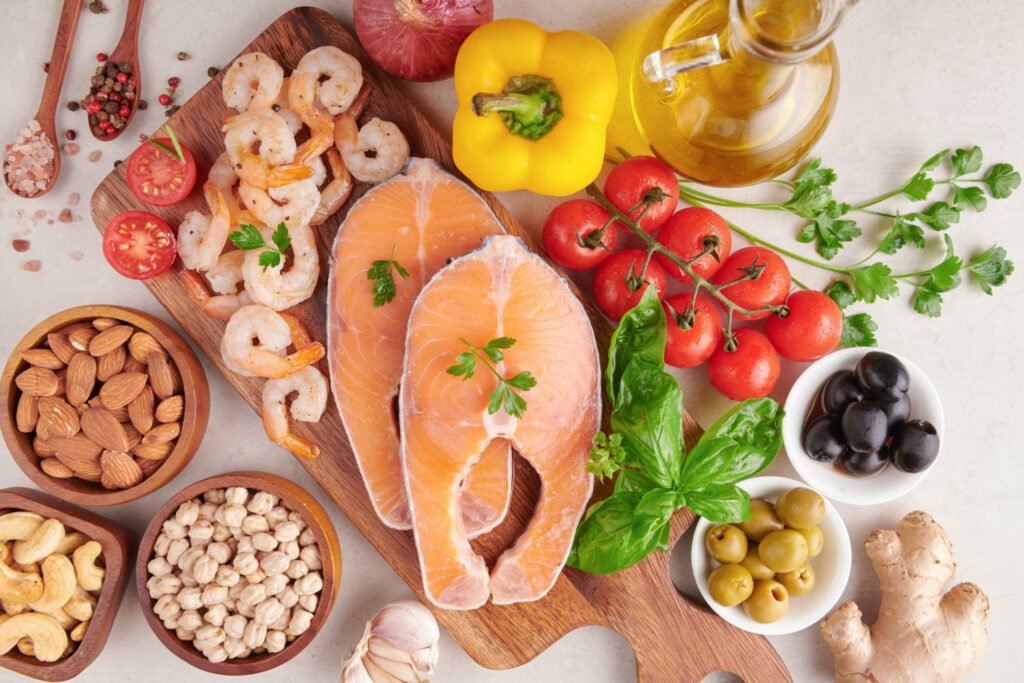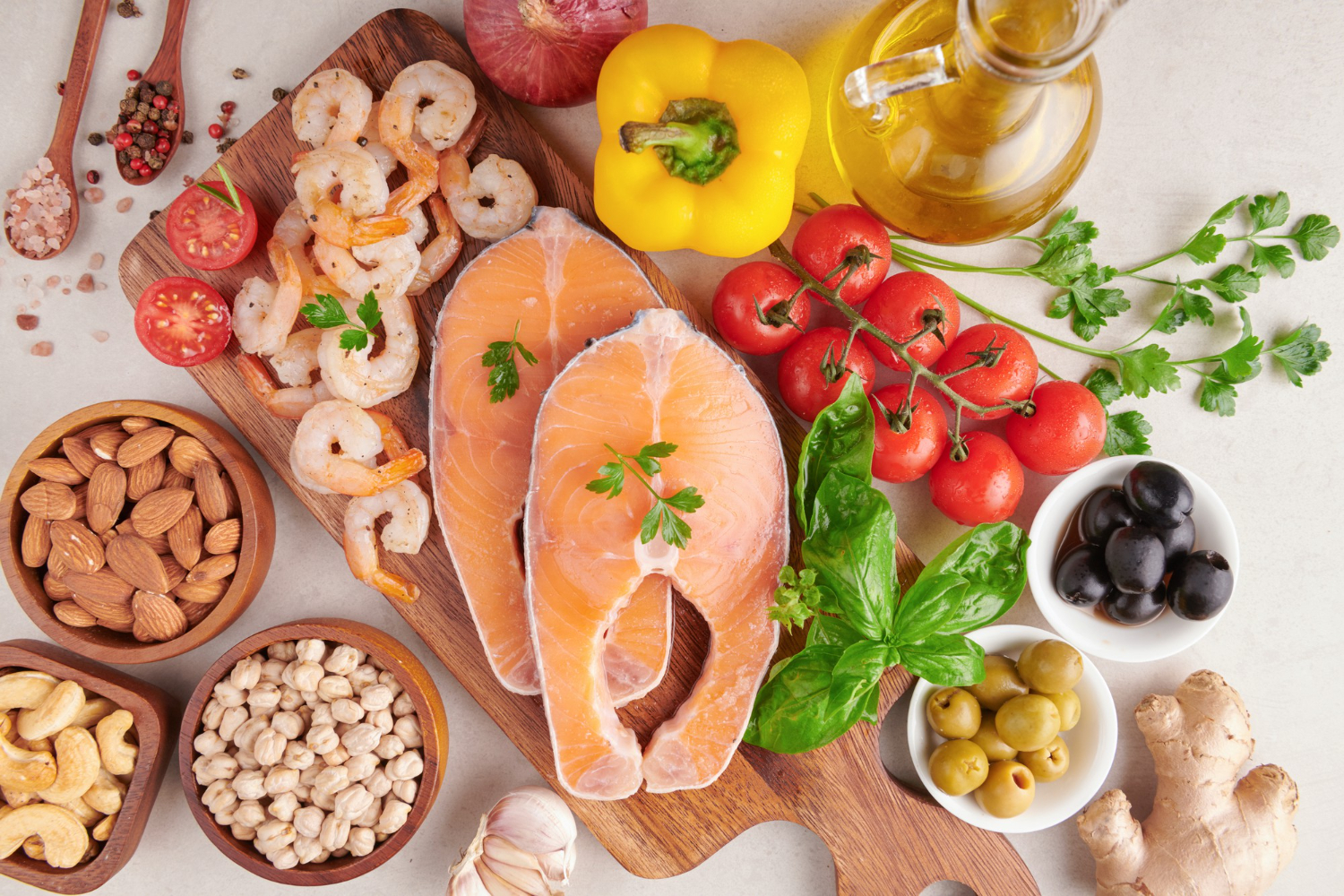
In this article
Overview
Omega-3 fatty acids are essential nutrients that play a critical role in maintaining overall health, particularly for the heart, brain, and immune system. However, your body can’t produce these essential fats on its own, which means you must obtain them through your diet. Luckily, a variety of foods are packed with omega-3s, making it easier than ever to incorporate this vital nutrient into your daily meals. In this article, we’ll explore some of the top foods high in omega-3s, offering a delicious and diverse range of options to boost your intake.
Why Omega-3s Matter
Before diving into the list of omega-3-rich foods, it’s important to understand why these fatty acids are so beneficial. Omega-3s are known for their anti-inflammatory properties, which can help reduce the risk of chronic diseases such as heart disease, arthritis, and even certain types of cancer. Additionally, omega-3s are crucial for brain health, supporting cognitive function and potentially lowering the risk of mental decline as you age. With such a wide array of benefits, it’s no wonder that omega-3s are often hailed as a cornerstone of a healthy diet.
Top Sources of Omega-3s
1. Fatty Fish
When it comes to omega-3 content, fatty fish are the undisputed champions. Salmon, mackerel, sardines, and trout are all excellent sources of these essential fats. Not only are these fish rich in omega-3s, but they also provide high-quality protein and a variety of other important nutrients like vitamin D and selenium.
- Salmon: Wild-caught salmon is particularly high in EPA and DHA, two of the most beneficial types of omega-3s. A single serving of salmon can provide more than the recommended daily intake of these fats.
- Mackerel: This small, oily fish is incredibly rich in omega-3s, with a 3.5-ounce serving providing almost double the recommended daily amount.
- Sardines: Often consumed whole, sardines are not only packed with omega-3s but also offer a good dose of calcium due to their edible bones.
2. Flaxseeds
For those following a plant-based diet, flaxseeds are one of the best sources of omega-3s. They are rich in alpha-linolenic acid (ALA), a type of omega-3 that the body can partially convert into EPA and DHA. Ground flaxseeds are easier to digest and allow your body to absorb more nutrients compared to whole seeds.
- Incorporating Flaxseeds: Sprinkle ground flaxseeds on your oatmeal, yogurt, or salads, or mix them into smoothies for a nutrient boost. You can also use flaxseed oil as a salad dressing or in smoothies.
3. Chia Seeds
Chia seeds are another plant-based source of omega-3s, providing a healthy dose of ALA. These tiny seeds are incredibly versatile and can be easily added to a variety of dishes.
- Using Chia Seeds: Chia seeds can be sprinkled on cereals, mixed into yogurt, or used to make chia pudding. They can also be added to baked goods for an extra nutritional punch.
4. Walnuts
Walnuts are not only a tasty snack but also a great source of omega-3 fatty acids. Like flaxseeds and chia seeds, they contain ALA, making them a valuable addition to a plant-based diet.
- Adding Walnuts to Your Diet: Enjoy walnuts on their own as a snack, or add them to salads, oatmeal, or baked goods. You can also incorporate walnut oil into your cooking for a nutty flavor and a boost of omega-3s.
5. Hemp Seeds
Hemp seeds are a lesser-known but highly nutritious source of omega-3s. In addition to providing ALA, hemp seeds are also rich in protein, making them a great addition to vegetarian and vegan diets.
- How to Use Hemp Seeds: Sprinkle hemp seeds on your salads, cereals, or yogurt, or blend them into smoothies. Hemp seed oil can also be used in salad dressings or drizzled over cooked vegetables.
6. Algal Oil
For those who don’t consume fish or prefer a plant-based diet, algal oil is an excellent alternative. Derived from algae, this oil is rich in DHA and EPA, making it comparable to fish oil in terms of omega-3 content.
- Incorporating Algal Oil: Algal oil can be taken as a supplement or added to smoothies, salad dressings, or other dishes. It’s a particularly good option for vegans and vegetarians looking to increase their intake of DHA and EPA.
The Takeaway
Incorporating omega-3-rich foods into your diet is a simple yet powerful way to support your overall health. Whether you prefer the rich, oily taste of salmon or the nutty crunch of walnuts, there are plenty of delicious options to choose from. By making these foods a regular part of your meals, you’ll be giving your body the essential nutrients it needs to thrive. Remember, a balanced diet is key, and omega-3s are an important piece of the puzzle for maintaining optimal health. So, start adding these nutrient-packed foods to your grocery list today, and enjoy the numerous benefits they bring to your well-being
A Quick Review
Omega-3 fatty acids are essential for overall health, particularly for the heart, brain, and immune system. Top dietary sources include fatty fish like salmon and mackerel, plant-based options like flaxseeds, chia seeds, and walnuts, as well as supplements such as algal oil. Incorporating these foods into your diet can reduce inflammation, support cognitive function, and lower the risk of chronic diseases. A balanced intake of omega-3s is crucial for optimal health.
Frequently asked questionsay
What are the best sources of omega-3s?
The best sources of omega-3s include fatty fish like salmon, mackerel, and sardines, as well as plant-based options like flaxseeds, chia seeds, walnuts, and hemp seeds. Algal oil is a great plant-based supplement option.
Why are omega-3s important for health?
Omega-3s are essential for heart health, brain function, and reducing inflammation. They help lower the risk of chronic diseases like heart disease, arthritis, and certain cancers.
Can I get enough omega-3s from a plant-based diet?
Yes, plant-based sources like flaxseeds, chia seeds, walnuts, hemp seeds, and algal oil can provide sufficient omega-3s, particularly ALA, which the body can convert into EPA and DHA.
How can I incorporate more omega-3s into my diet?
You can add fatty fish to your meals, sprinkle ground flaxseeds or chia seeds on yogurt or oatmeal, snack on walnuts, and use algal oil or hemp seed oil in salads or smoothies.
What is the difference between ALA, EPA, and DHA?
ALA (alpha-linolenic acid) is a plant-based omega-3, while EPA (eicosapentaenoic acid) and DHA (docosahexaenoic acid) are primarily found in fish and algae. EPA and DHA are more directly beneficial, but the body can convert some ALA into EPA and DHA.












